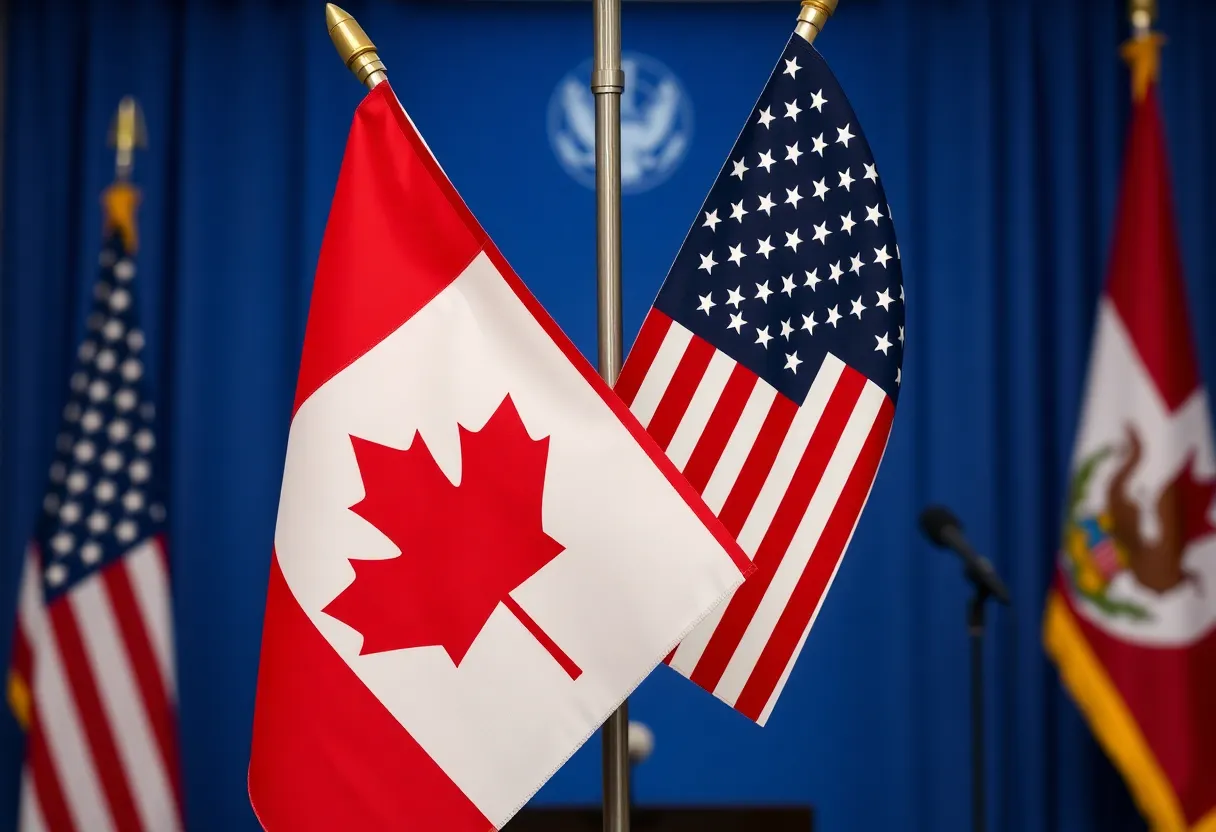News Summary
Canadian Prime Minister Mark Carney has declared an end to the long-standing relationship model with the U.S. during a press conference in Ottawa. Facing escalating tariffs from President Trump, Carney emphasizes Canadian independence and readiness for firm retaliatory measures. With an election coming up and calls for renegotiation of trade and security relationships, Canada is shifting gears in its approach to the U.S. amid rising political tensions and potential international repercussions.
Canadian Prime Minister Marks New Era in U.S. Relations
In a significant shift, Canadian Prime Minister Mark Carney has announced that the traditional relationship between Canada and the United States, which has long relied on economic integration and military cooperation, is officially over. This declaration came during a spirited press conference in Ottawa, following his discussions with provincial premiers.
A New Chapter
As the world watches, Carney explained that the Canadian government is bracing for upcoming negotiations with U.S. President Donald Trump, especially in the wake of the ongoing tariff war. Highlighting a perspective of empowerment, he reminded Canadians that they have the power to shape their own future and *control their destiny*. His resolute statement, that Canadians are “masters in our own home,” underscores a strong call for national strength and independence.
Trump’s Tariffs and Canadian Response
The tension escalates as Trump announced a hefty 25% tariff on imported foreign-made cars, effective April 2, aimed at boosting the U.S. auto industry. In response to these U.S. tariffs targeting Canadian exports, which have already hit $41.9 billion, Carney has committed to further actions. Canada is set to impose additional tariffs amounting to approximately $66 billion on American imports, making it clear that the response will be both firm and calculated.
No Immediate Details, But Strong Intent
Though Carney has kept specific retaliatory actions under wraps for now, he promises that Canada will react forcefully to any U.S. tariffs while ensuring that “nothing is off the table” in the quest to safeguard Canadian workers and industries. This approach is all about making Canada resilient and less reliant on its neighbor to the south.
Political Landscape and Upcoming Election
As political tensions rise, Carney has called for an election on April 28. This election will seek a stronger mandate to address the swirling trade threats posed by Trump, who has bizarrely hinted that Canada might consider becoming the 51st U.S. state. In the lead-up to this pivotal moment, Carney faces a challenging race against Pierre Poilievre’s Conservative Party, especially with the Liberal Party seeing a rise in perception following Trudeau’s exit.
Renegotiating Security and Trade
Carney points out that there may be a need for a broad renegotiation of Canada’s security and trade relationships with the U.S. He’s unapologetically framing the tariffs as a “direct attack” on Canadian workers, rallying public support for a robust response that showcases Canada’s resolve.
International Repercussions
The trade war extends beyond just the U.S. and Canada. Trump’s rhetoric suggests that if the European Union backs Canada in its efforts, they could face scrutiny and significant tariffs as well. Carney emphasizes that any retaliatory measures taken by Canada aim for a “maximum impact” on the U.S., all while striving to limit adverse effects on Canada itself.
Time for Change
This serious turning point in international relations calls for dramatic shifts in trade strategies, some of which seemed unimaginable before. As Carney leads Canada into this new era, the emphasis will undoubtedly be on agility and adaptability in dealing with rapidly changing global trade dynamics. The future may hold challenges, but the resolve to protect national interests appears stronger than ever.
Deeper Dive: News & Info About This Topic
- Financial Times
- Fox News
- The Hill
- Wikipedia: Canada–United States relations
- Encyclopedia Britannica: Canada








